If Only God Would Tear Open the Heavens – Isaiah 64:1,2
T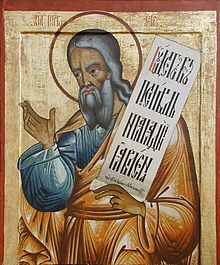 he writings of the prophets are especially appropriate during the season of Advent. They frame the story of Jesus, they provide us insight into the expectations of the people of Israel at the time Christ was born.
he writings of the prophets are especially appropriate during the season of Advent. They frame the story of Jesus, they provide us insight into the expectations of the people of Israel at the time Christ was born.
Chapter 64 of Isaiah is only 12 verses long. If I were using it as the basis of a sermon, I’d read the whole thing rather than just verses 1-9 as the lectionary suggests.
The book of Isaiah is now generally considered to have been sort of a group project. Yes, there was a prophet named Isaiah who lived from 740 to 680 B.C. Yes, much of the material in the book of Isaiah was written by him (especially in chapters 1-39). But, it is generally supposed today that large portions of the book were actually written by other people who lived much later. These people sometimes get called Second Isaiah (Deutero-Isaiah, if you want to sound educated) and Third Isaiah.
 The oldest copies of the book of Isaiah don’t reflect any knowledge whatsoever of this multi-part authorship of the book. But, here’s the problem: the book of Isaiah seems to address issues and situations that arose long after Isaiah’s death. Part of it seems to come out of the years that the people of Israel were in captivity. Part of it seems to reflect the era when the nation of Israel was seeking to re-establish itself after its long captivity.
The oldest copies of the book of Isaiah don’t reflect any knowledge whatsoever of this multi-part authorship of the book. But, here’s the problem: the book of Isaiah seems to address issues and situations that arose long after Isaiah’s death. Part of it seems to come out of the years that the people of Israel were in captivity. Part of it seems to reflect the era when the nation of Israel was seeking to re-establish itself after its long captivity.
So, there you go. Either Isaiah miraculously (and for no good reason) projected himself into the future to address situations that wouldn’t arise until long after his death… or: the book of Isaiah as we know it was a group project. That is to say, his disciples added to Isaiah’s great vision as the years went by. And, they did so anonymously.
Isaiah 8:16 gives some credibility to such an idea. Isaiah says: “Bind up the testimony, seal the teaching among my disciples.” So, there were disciples who kept the book. Maybe they felt they were responsible to continue the prophecy into their own times, speaking by the same Spirit.
Now, Isaiah 64 belongs to that section of the book generally attributed to Third Isaiah. (The people of Israel have now returned from exile to re-establish the nation.) A preacher might well just talk about the author here as “the prophet” and leave it at that. The alternative is to speak of “Third Isaiah” as if that were a book of the Bible, or a person that we actually know existed. (Which it isn’t and we don’t.) But, whatever. A lot of people just say: “Isaiah” — and why not, since the later additions are anonymous anyway. These theoretical later prophets gave the original Isaiah all the credit.
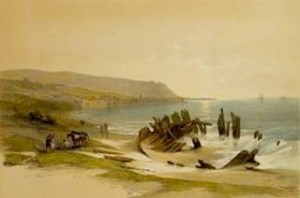 But, here is the kind of thing that doesn’t fit the career of the historical Isaiah: “Your holy cities have become a wilderness, Zion has become a wilderness, Jerusalem a desolation. Our holy and beautiful house, where our ancestors praised you, has been burned by fire, and all our pleasant places have become ruins.” (vs. 10, 11). It is particularly poignant to think of these words as coming from the generation that returned to their homeland. They come back and find ruins — a desolation.
But, here is the kind of thing that doesn’t fit the career of the historical Isaiah: “Your holy cities have become a wilderness, Zion has become a wilderness, Jerusalem a desolation. Our holy and beautiful house, where our ancestors praised you, has been burned by fire, and all our pleasant places have become ruins.” (vs. 10, 11). It is particularly poignant to think of these words as coming from the generation that returned to their homeland. They come back and find ruins — a desolation.
And, the prayer of the prophet is that the God of Israel would make Himself known to all the world. The prayer of the prophet is that life would not just go on as it always has. Something new and powerful and impossible to deny would happen. Verses 1 & 2:
כִּקְדֹחַ אֵשׁ הֲמָסִים מַיִם תִּבְעֶה־אֵשׁ לְהוֹדִיעַ שִׁמְךָ לְצָרֶיךָ מִפָּנֶיךָ גּוֹיִם יִרְגָּזוּ
בַּעֲשׂוֹתְךָ נוֹרָאוֹת לֹא נְקַוֶּה יָרַדְתָּ מִפָּנֶיךָ הָרִים נָזֹלּוּ
“O that you would tear open the heavens and come down,
so that the mountains would quake at your presence—
as when fire kindles brushwood
and the fire causes water to boil —
to make your name known to your adversaries,
so that the nations might tremble at your presence!” (NRSV)
Did you ever get sick of life the way it is? Did you ever get sick of the way things are in this world? Did you ever wish someone/something couldn’t just step in and change it all? That’s what the prophet envisions here: God tearing open the fabric of the skies like a knife would tear open the canvas of a tent.
 There is such a thing as holy dissatisfaction. I don’t believe that followers of the God of Abraham, Isaac, Jacob and Jesus the Christ are content with the world the way it is. Our God is a redeemer God who seeks to redeem and change and make new.
There is such a thing as holy dissatisfaction. I don’t believe that followers of the God of Abraham, Isaac, Jacob and Jesus the Christ are content with the world the way it is. Our God is a redeemer God who seeks to redeem and change and make new.
And I believe that those who have been taught to pray “Thy Kingdom come, they will be done, on earth as it is in heaven” are not about to be satisfied with the world the way it is. We seek for a better world, a more just and hopeful world.
Certainly, here the ancient prophecies intersect with our Christian dissatisfaction with the world the way it is. Christians also are called to consider themselves “strangers and exiles” in this world. Like the exiles of old, we look on a place that should be our home and see a desolation. And, like them, we call out to God. We call out that God’s reality, presence and will would be known in all the world — among all the nations.



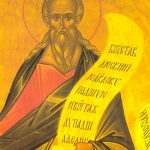
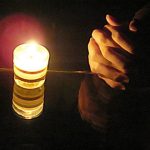

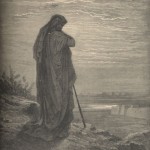




Craig – I pretty well had my sermon on this text finished, but you’ve provided some really helpful points here that I’ll be weaving in. Thank you!
You are welcome. I am glad you found something helpful.
I love this text in both its historical context and for what it helps me to articulate today. In a visceral way I experience that plaintive cry for God’s intervention and so often it becomes my cry. Thanks for sharing this reflection! Needed this today!